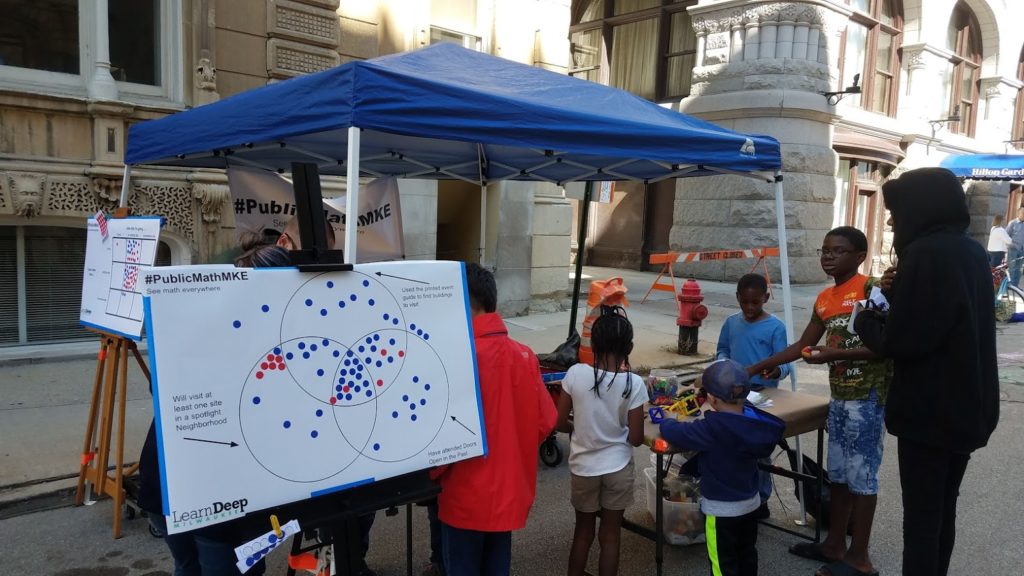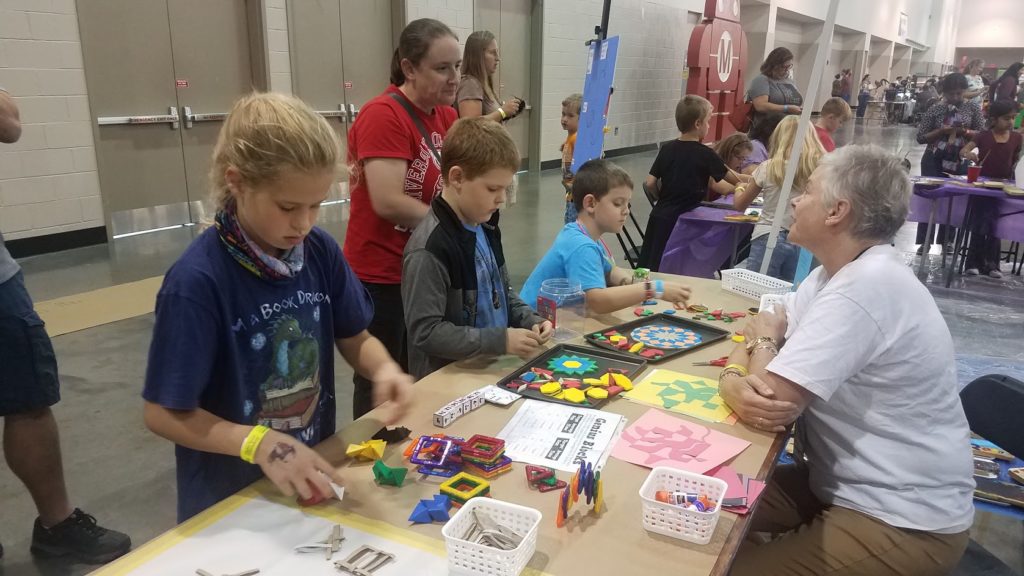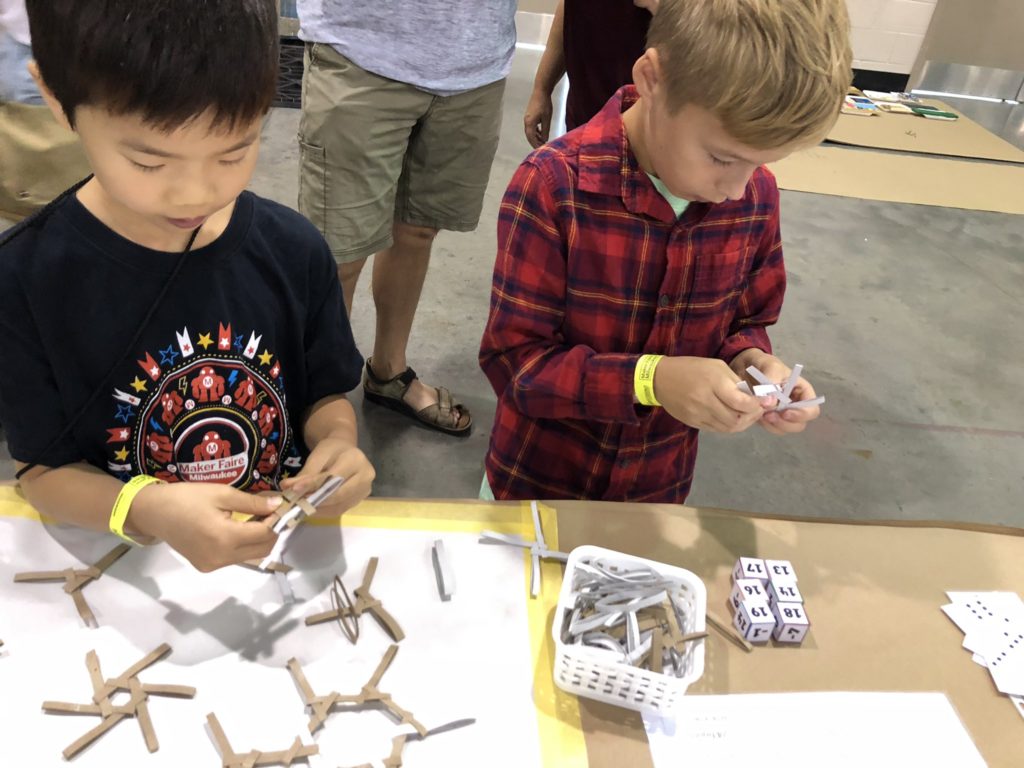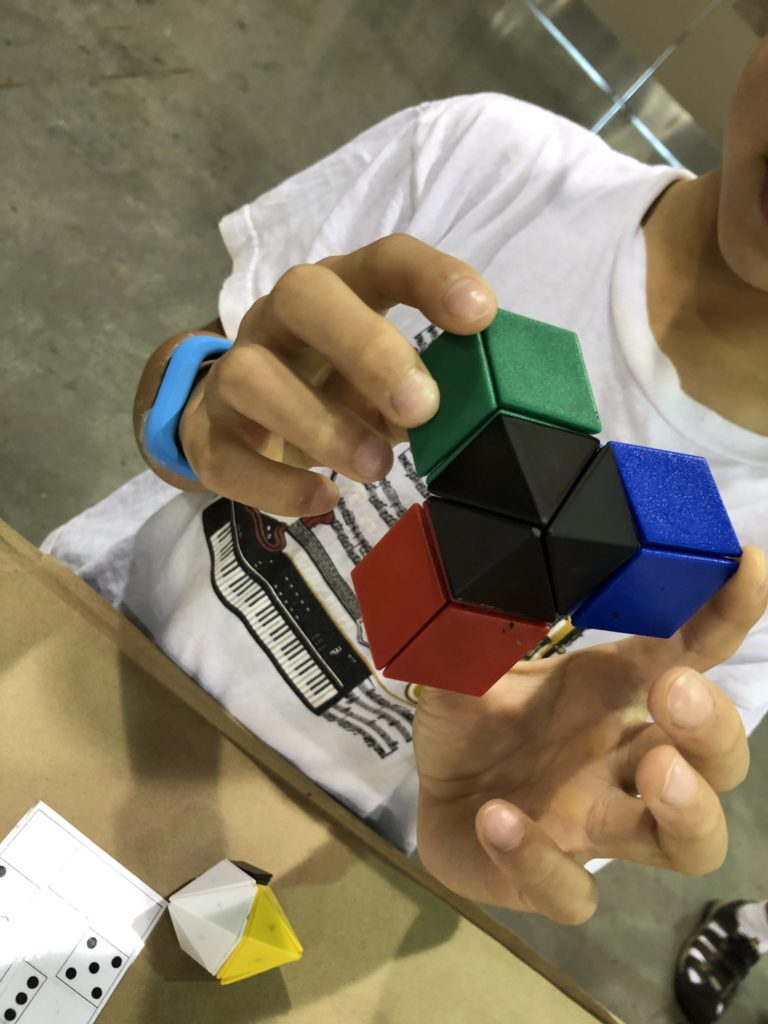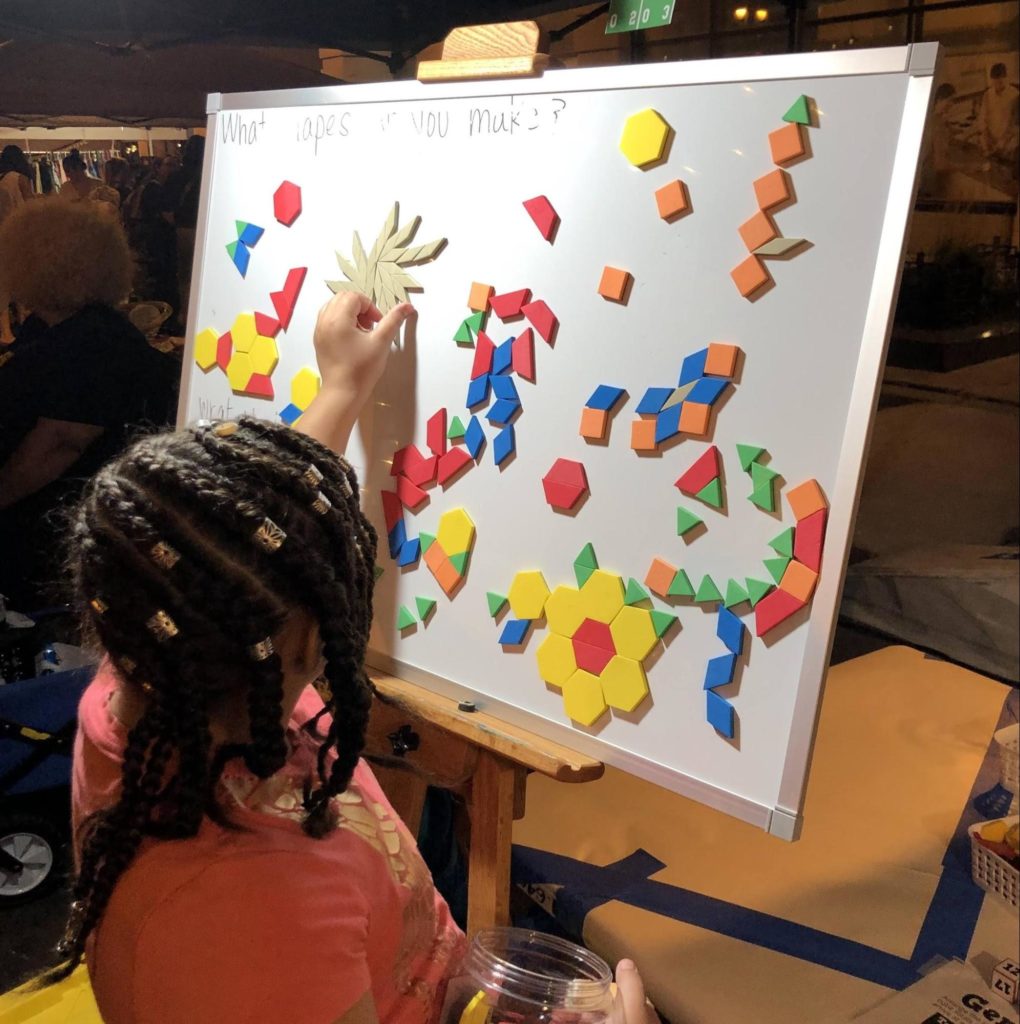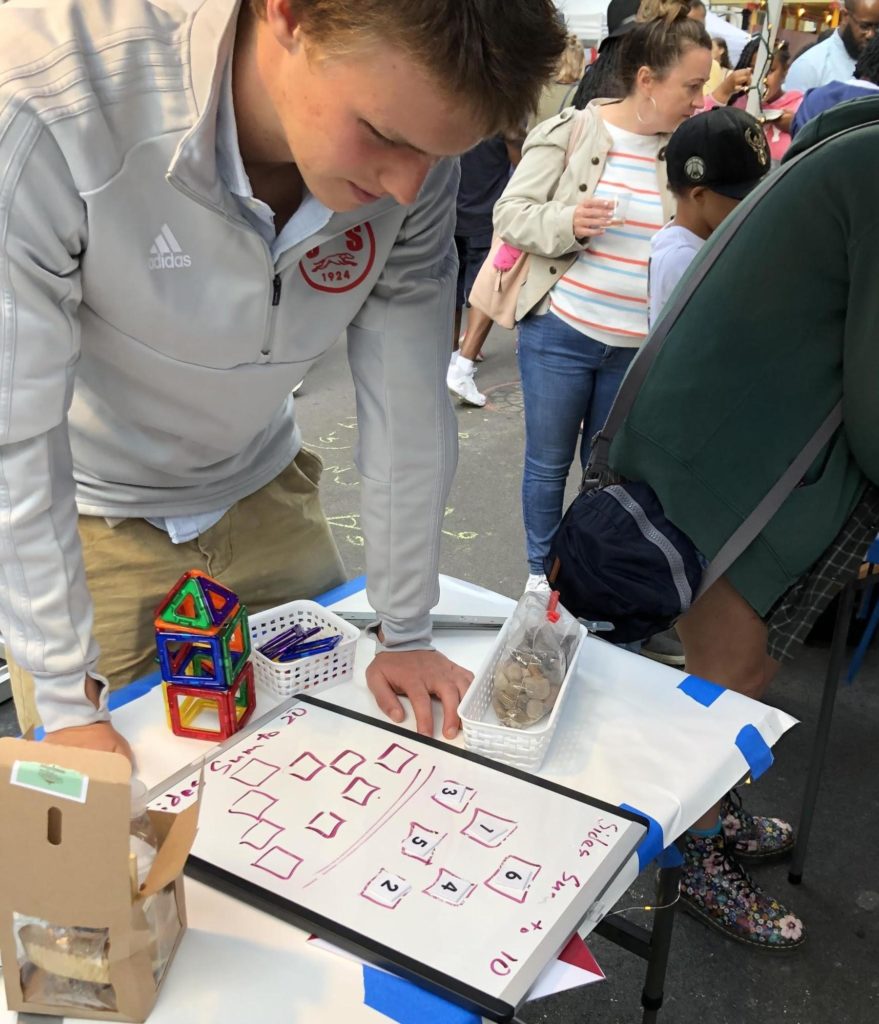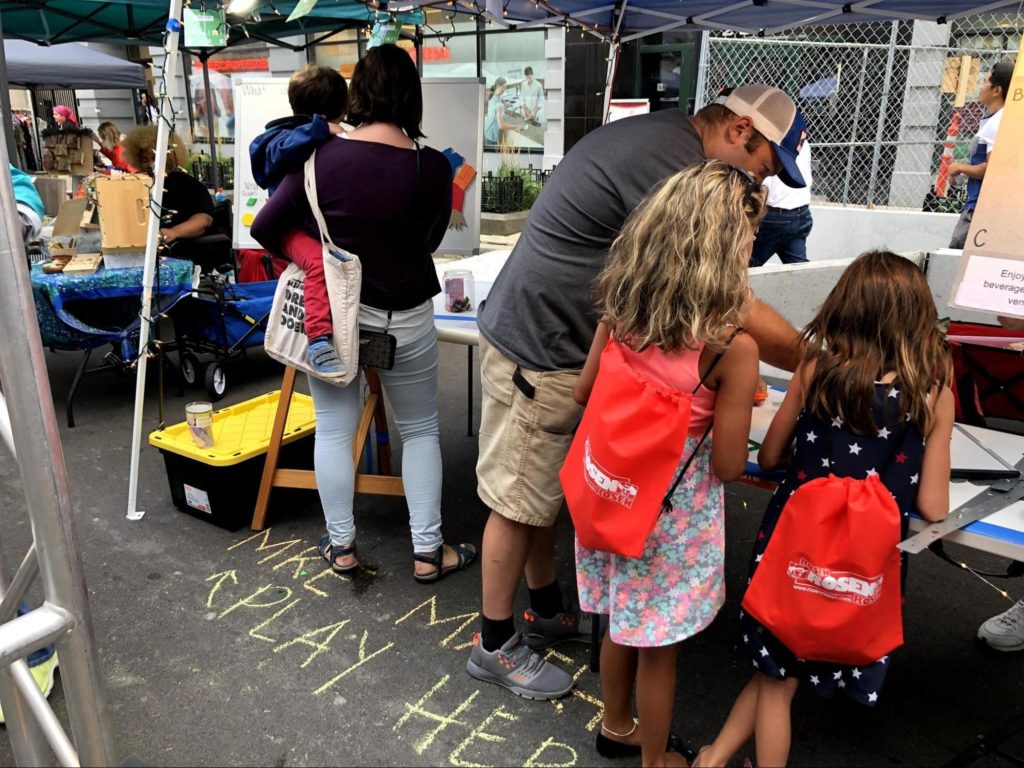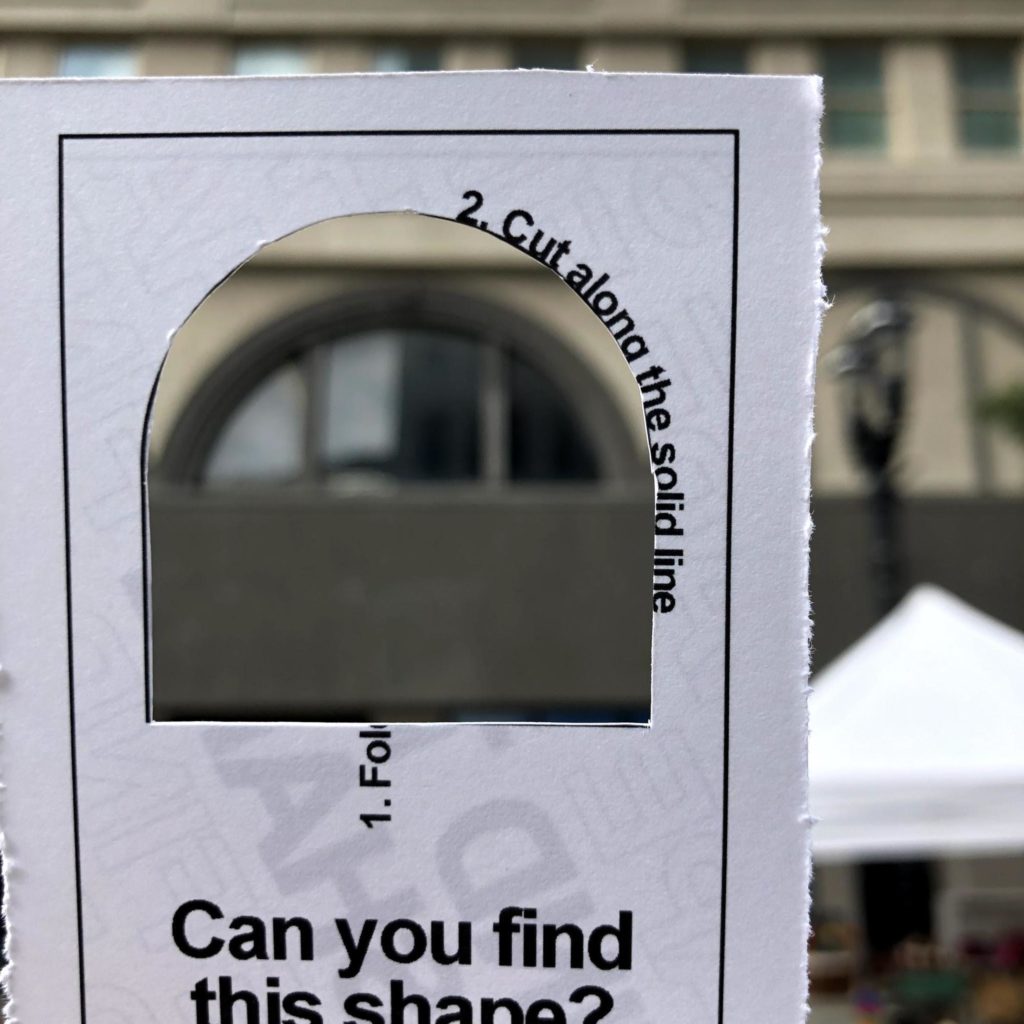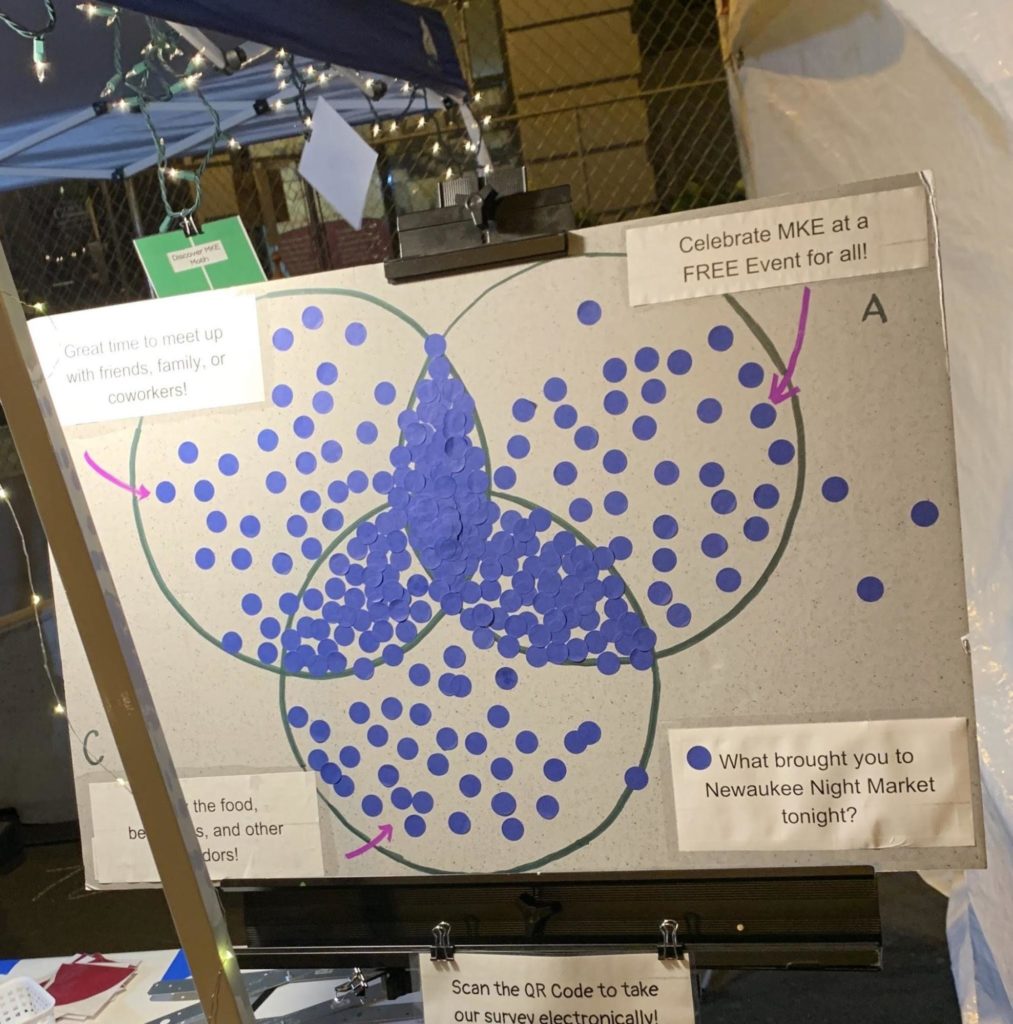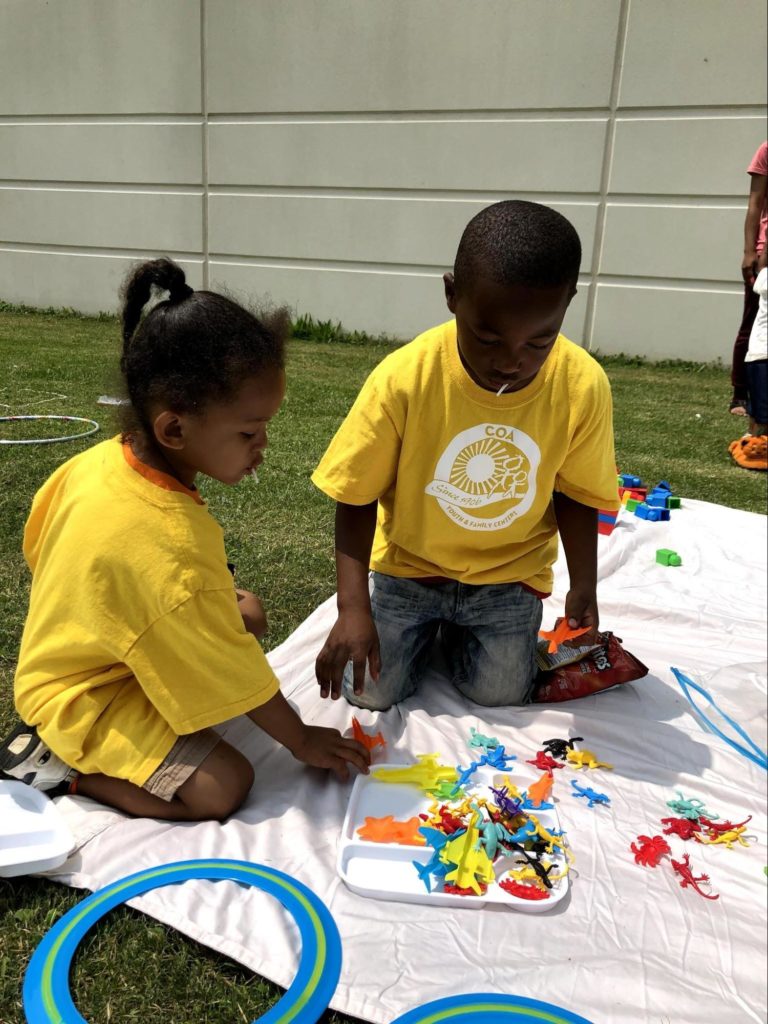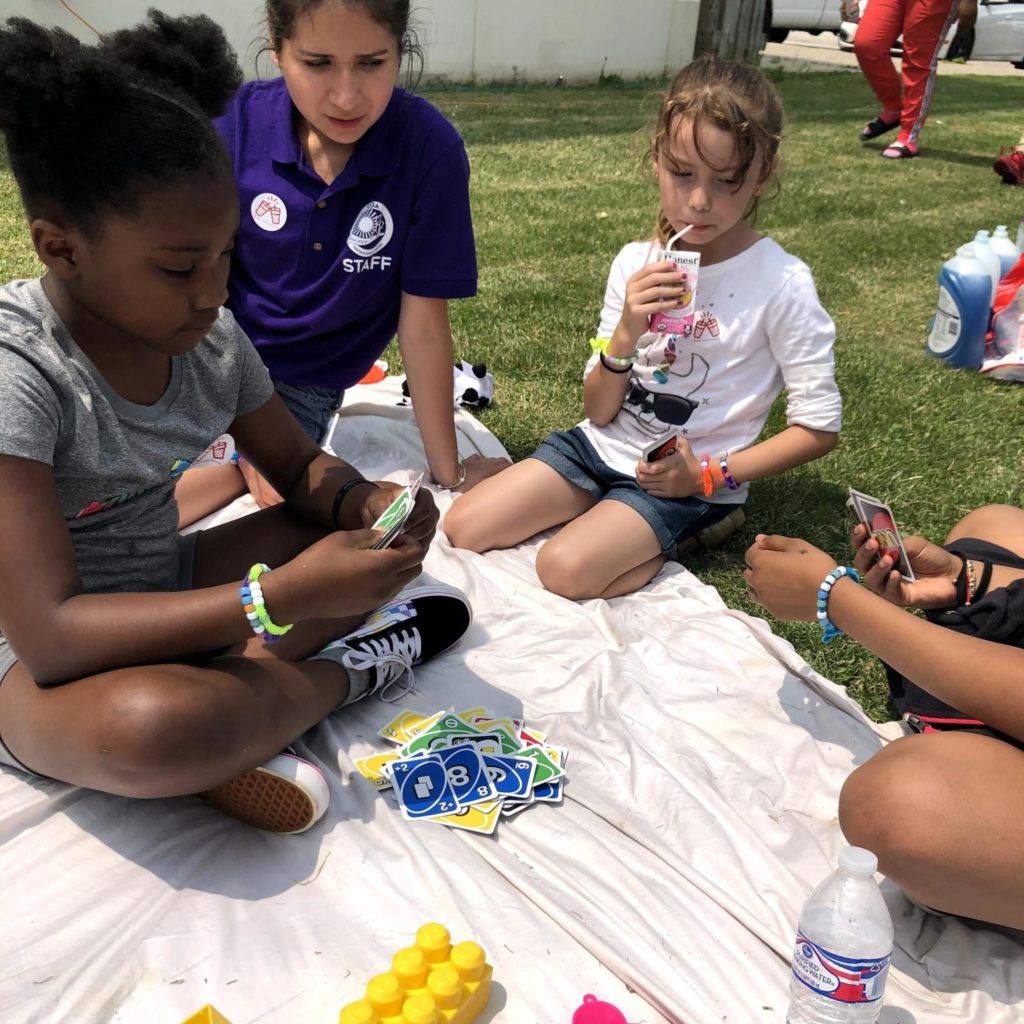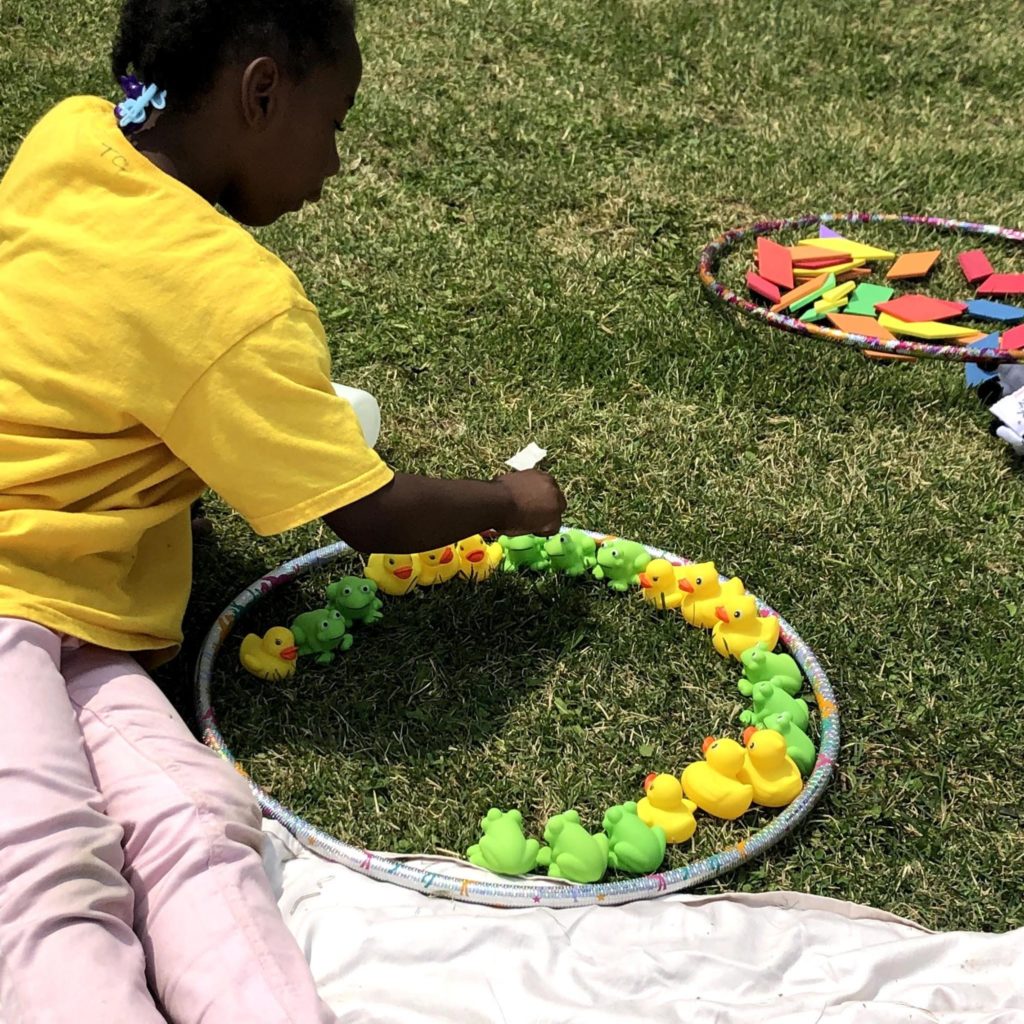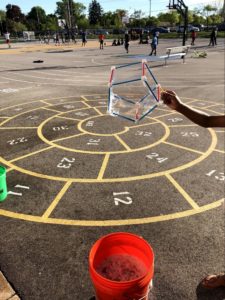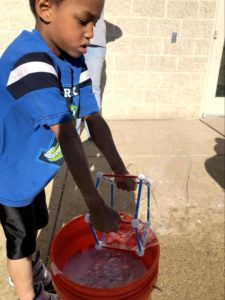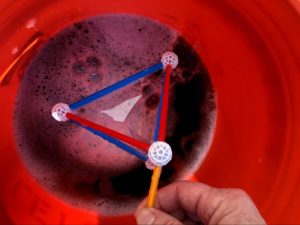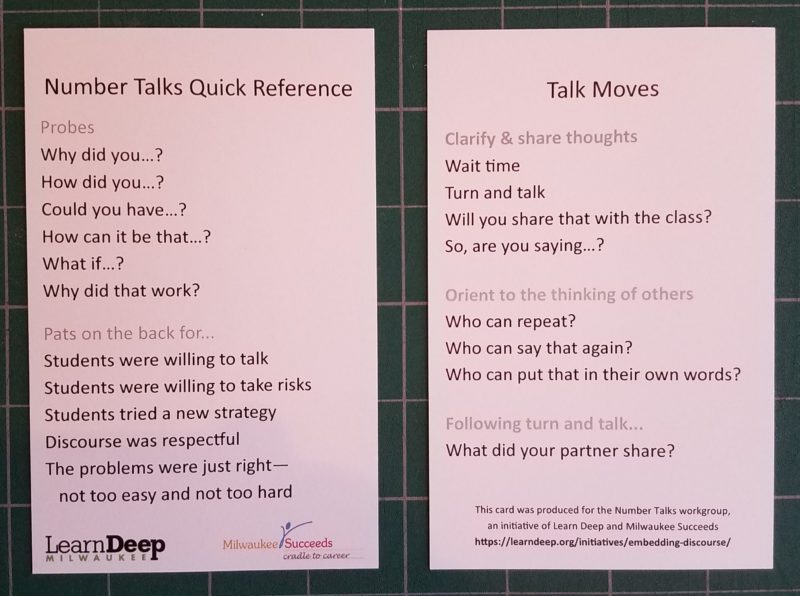
Math = A Traumatic Experience.
It’s almost universal and it stands in the way of our current generation navigating elementary, middle and high school with a different experience regarding math.
Parents who have a negative experience with math are less likely to engage with their student children about homework, encourage them to attend school, etc.
So this school year, Learn Deep is conducting a pilot, in coordination with Carmen Schools of Science and Technology’s Stellar Elementary, faculty from the University of Wisconsin-Milwaukee Math department and our friend Bernie Traversari, with a small seed grant from the Wisconsin After School Network to experiment with how we might provide opportunities for parents to modify their perception of math. Our experiment Tuesday night: arrange for parents and their children to spend time together in discourse, while attempting to solve math-based puzzles in an after school setting. Since many parents are non-English speaking, we provided UWM student support for translation when needed.
Our experiment Tuesday night: arrange for parents and their children to spend time together in discourse, while attempting to solve math-based puzzles in an after school setting. Since many parents are non-English speaking, we provided UWM student support for translation when needed.
The overall sentiment at the end of the evening: I enjoyed working on solving the challenges together, I will definitely be back for the next math evening, I wish we had math in this way when I went to school x years ago.
Are you a school district interested in addressing parent math trauma as a way to enable parent involvement in the learning process? Follow our story as we host 2 more Math Events this school year.
Thanks to Dean Joshua Mack, Kevin McLeod, Gabriella Pinter, Danny McCormick

